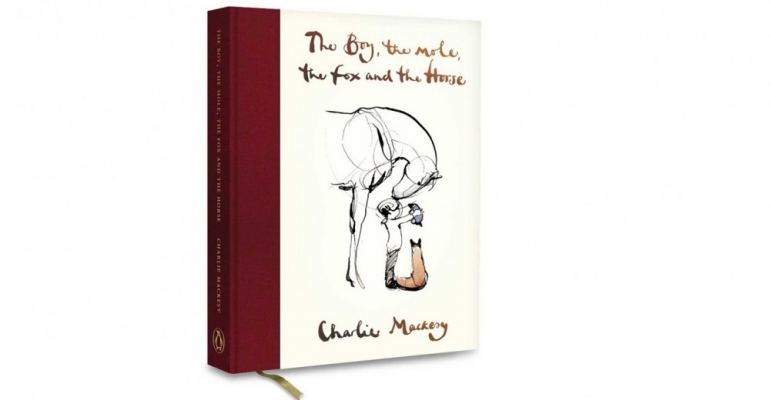
The Courage To Say “Help”
“Help,” said the horse.
These simple, profound words, and the pen-and-ink drawing that accompanies them, have turned artist Charlie Mackesy into the author of Waterstones’ book of the year. The book, The Boy, the Mole, the Fox and the Horse, follows these four unlikely friends on a journey through snow and storm, across fields and rivers, and listens in on their wisdom along the way.
I haven’t read it yet (feel free to buy me it for Christmas), but one of my highlights of 2019 was visiting an exhibition of Charlie’s work, which featured many of the drawings. They are beautiful in their simplicity and depth, and carry some very valuable lessons about life, love, hope, and sometimes cake.
But this is the one that has stuck with me. It breaks my heart that it is true, especially among Christians, but I know that it is.
It is hard to ask for help. Hard to admit our brokenness. Hard to accept, in our individualistic society, that we can’t manage alone. Hard to open ourselves up to potential rejection or ridicule. And hard to accept the help even when it is gladly, openly, freely given.
It is humbling. Our pride is dented. The façade we have so carefully constructed is cracked, and sometimes even shattered irreparably. And yet it is a beautiful thing. It is what we are designed for. I firmly believe that part of growing in maturity as a human being and as a believer is being willing to say, “Help”. Because it is part of being in a flourishing community.
People – in general – love to help. We love to feel useful, to be able to contribute. I’ve had real breakthroughs in a couple of friendships when one or other of us has debased ourself sufficiently to ask for help. All of a sudden an invisible barrier of ‘coping’ has been stripped away and the real person has been revealed. Think about someone you know who is better than you at just about everything – doesn’t it feel great when you can provide a skill or resource that they simply didn’t have? Why are we denying one another the chance to feel so useful, so worthwhile?
Of course, this can be abused, and the helper can feel taken advantage of, but usually the problem there is that the helper doesn’t have the humility to say, “I can’t, sorry”. That, too, takes courage, especially when the person seeking help is fragile and needy, but as long as we do it kindly, and offer to help find a solution if we can, it is actually helpful in itself. It’s helpful for our – the helper’s – physical, mental and emotional wellbeing. But it is also helpful for the body of Christ as a whole: it offers others who may not be feeling very useful the opportunity to get involved; and it also means that those seeking help don’t need to worry that they’re being a burden, or that the helpers are secretly sick of it. If they trust you to be honest and say no when you’re not available, don’t have the right skills, or simply need a break that day, they don’t need to anxiously second-guess whether it’s safe to ask you or not.
As Christians we are supposed to be family – a good, loving, functional family. The sort of family that assumes they’re going to help paint your new flat, move in for a while after your hip replacement, or look after the kids while you go to your grandfather’s funeral. When we don’t ask for help, we’re denying one another the opportunity to be the family God has commanded us to be. We’re actually causing one another to miss out on the richness of what he designed for us.
Jump leads
This post has been boiling around in me for a few weeks now. It all started at a conference I attended at City Church, Cambridge. If you’ve ever been there, you’ll know it is situated opposite a large supermarket with corresponding car park. During our lunch break, a message went out that a “distressed member of the public” couldn’t start his car, and had come in to see if anyone had any jump leads (and a working engine) he could use. Someone did, and before long his engine was once again turning over and he was able to get on his way.
I was struck by the mental image I had of this man, standing in a car park surrounded by power and unable to access any of it until, of course, he plucked up his courage, humbled himself, and came into a church building to ask a bunch of strangers for help. Can you imagine how helpless he felt, standing alone in that crowded car park? And how embarrassing it was to have to admit to his failure to be able to start his car. He must have felt so small, so ashamed, and yet in his act of courage he showed great strength.
If you’re struggling at the moment, either physically, emotionally or spiritually, the power you need is close at hand, if you can find the courage to ask for it.
One final thought – to ask for help is to be Christlike.
At this time of year in particular, we remember our Lord’s ultimate act of humility – entering into the womb of one he had created, dependent on her for his very life. Being born helpless and incontinent, reliant on a whole community of others for food, warmth, cleanliness, and protection. Growing into manhood and choosing, once again, to make himself reliant on our help to spread his word throughout the world. He knew we would mess it up, many, many times, in disastrous and devastating ways and yet he, the creator of the universe had the courage to ask for help.